Firing Deviant Staff Member Was My Toughest Leadership Decision – CEO Bomarah, Haija Bola Muse
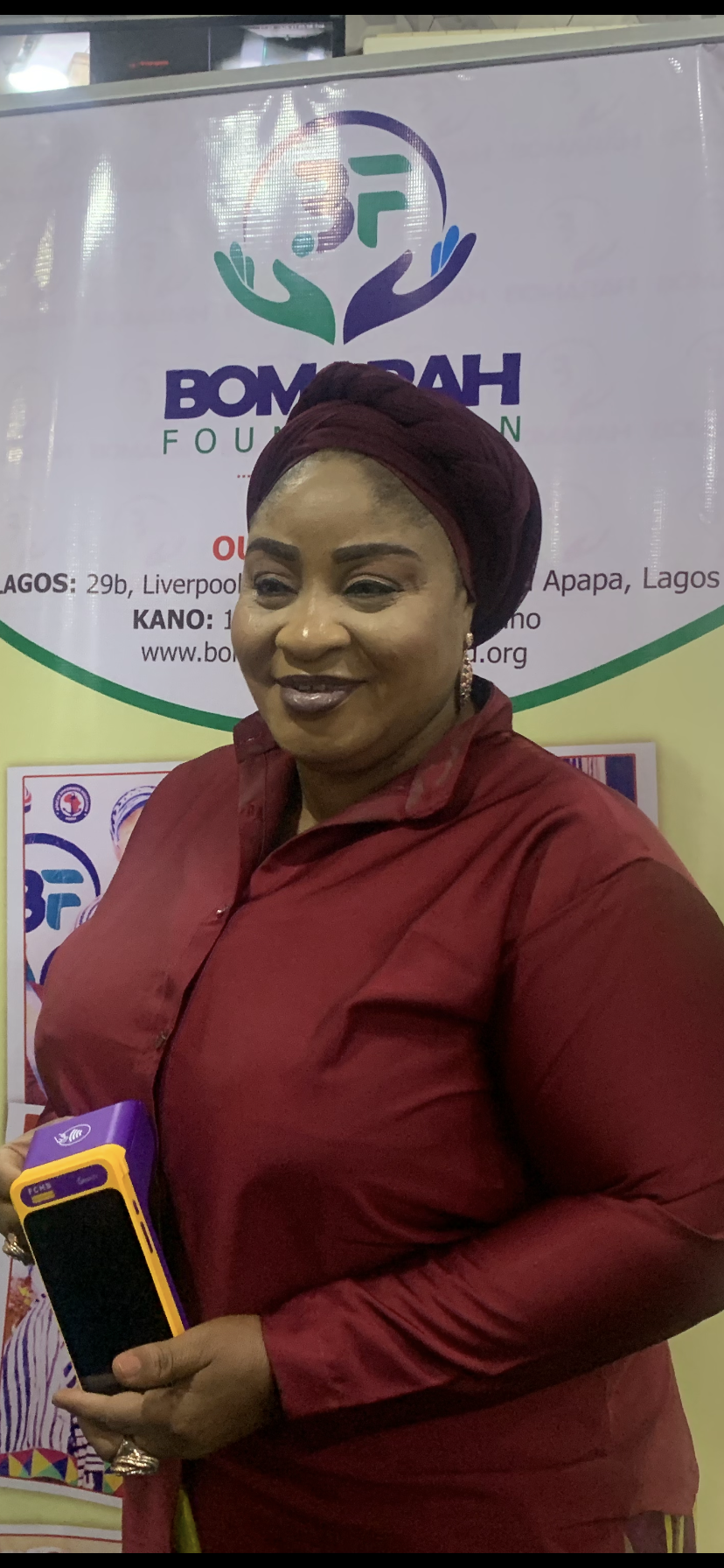
In this edition of Woman Leader, Lagos based Hajia Bola Muse sat with Ismail Aniemu and Maria Yusuf where she led the JournalNG team into her corporate, social and philanthropic world
Aside her company, Bomarah Group , which is fast becoming a household name in logistics and port services, Bola Muse also runs a vibrant non governmental organisation, Bomarah Foundation
Whereas she has been doing selfless outreaches long before 2012 when the foundation was established, Bola Muse’s footprints of philanthropic acts have touched on Kirikiri Prison inmates, physically challenged persons, women in maritime and artisans across various fields
Our team’s recent encounter with Hajia Muse coincided with her empowerment programme while issuing point of sale (POS) machines, in conjunction with First City Monument Bank to some physically challenged youths in Apapa, Lagos.
(Q) How would you measure success in your leadership?
To me, success isn’t measured by the amount of money in your account or material wealth it’s about how much happiness you bring to others. I believe true success lies in how happy you can make the people around you, especially your neighbors and those in your community. It’s not about financial achievements, but about the impact you have on others’ lives. By God’s grace, I’m doing my best to ensure that everyone around me feels supported, uplifted, and has a chance to be truly happy and successful.
(Q) Can you share an example of a time you led a team through a challenging situation?
Through the group I belong to and my NGO, which partners with other organizations, we’ve been able to reach and support many people especially women and individuals living with disabilities. These are often the forgotten members of society, the ones people overlook or question why anyone would care for them. I’ve heard remarks like, “Why is she working with blind or deaf people? Are they her relatives?” But the truth is, I do it because I want to touch lives. My mission is to bring attention and support to those who are rarely seen or heard, not because of any personal connection, but because it’s simply the right thing to do.
One of the most impactful areas of our work has been in the prisons, particularly in maximum security facilities, where the need is greatest. I remember inviting someone to join our outreach there, and she told me plainly, “Hajia, I’m not interested in anything that has to do with prisons.” Others whispered behind my back, assuming I must have a relative behind bars. But I don’t. I go there because I believe in the power of giving hope to those who feel forgotten. It’s a vision I carry deeply that when you help others, especially the most neglected, God opens doors for you. And I find true happiness in doing this work.
(Q) How long have you been supporting people living with disabilities?
I started supporting people with disabilities even before we officially registered the Bomarah Foundation in 2012. This has been a lifelong commitment, rooted in my passion for inclusion and compassion, long before it became a formal initiative.
(Q) How do you motivate and inspire your team to achieve goals?
I lead by example, always striving to live by the principles of the Almighty and keeping in mind that there is life after death. I believe that our time on earth isn’t just for ourselves, but for others as well. I encourage my team to embrace this mindset, and they know that I hold myself to the same standard. My leadership is rooted in values, compassion, and accountability, and my staff understand that I expect the same level of integrity and commitment from them.
One of the toughest decisions I’ve ever had to make as a leader was sacking my staff member . It’s something I find incredibly difficult, because when I dismiss someone, I’m not just affecting them. I’m impacting an entire family. To me, it feels like I’m sacking a whole household. But when someone repeatedly fails to prioritise the company’s interests or disregards our shared values, tough decisions must be made.
Everyone around me knows that if I say I will take action, I follow through. There have been moments when people pleaded on behalf of those I let go, and in some cases, after reflection and genuine remorse, I’ve given individuals a second chance. It’s never easy, and the weight of those choices stays with me, but I always try to lead with both firmness and heart.
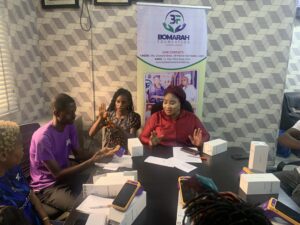
(Q) How do you handle conflict within your team?
I handle my leadership role with ease, drawing strength from the natural multitasking ability that comes with being a woman and a mother. Despite leading the team, I manage responsibilities smoothly, and I also tey to study their psychology. I understand people especially my staff, many of whom have grown with me over the years. I know their strengths and how to bring out the best in them. When conflicts arise, I’m able to manage them calmly and amicably, creating a productive work environment.
(Q) Are there initiatives, mentorship, or policies you’ve supported to foster inclusivity for younger women?
Yes, I actively support people living with disabilities, particularly those with hearing impairments. Through the Bomarah Foundation, we have been strong advocates for the inclusion of sign language in public communication. We recognize that the deaf community often feels excluded, especially when watching television, where they may see people speaking but have no idea what’s being said. In response to their concerns, we’ve worked to ensure that sign language interpreters are present during programs, making information accessible to all. The Bonarah Foundation was proudly part of this advocacy effort, especially within Lagos State, helping to give a voice to those who are often unheard.
(Q) Tell us about a time when you had to influence stakeholders who disagreed with your vision.
I’ve not faced significant resistance when it comes to my work with the foundation. The way I present my ideas and plans often makes it easy for others to understand and align with my vision. I’m passionate about what I’m doing , and those around me recognise and support it wholeheartedly. While challenges may arise in professional settings, when it comes to my personal commitment through the NGO, I can confidently say by the grace of God I haven’t encountered serious opposition.
(Q) How do you stay current and continue developing as a leader beyond the office setting?
Beyond the office setting, I’ve remained focused, and I attribute much of that to the blessing of the Almighty God and the strong support of my family. When your family stands by you, it makes everything in life easier to manage. A peaceful and supportive home brings inner happiness, and without that, it’s difficult to stay focused or find fulfillment even at work. But to God be the glory, I am surrounded by my staff and family , and that has made all the difference in both my personal and professional life.
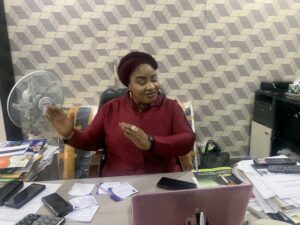
(Q) As a wife, mother and family person, how does the home front influence or support you in career and leadership?
I make a clear distinction between my role as a CEO and my role as a mother. I don’t mix the two. I believe that when you’re able to separate your professional and personal life, you create a healthy balance and a clear pathway to peace of mind. At work, I fully embrace my responsibilities as a leader, but the moment I leave the office gates, I leave the CEO title behind and step into my role at home as a mother. Everyone around me understands this boundary. Once I’m home, business matters pause . My customers know not to call, and I dedicate that time to my family. Within two hours, I manage all I need to do, and by 10 p.m., I’m in bed. Drawing that line between work and home has made life easier for me, and I always stay grounded in who I truly am.
(Q) Can you share an estimate of how many people have benefited from your foundation’s support and programs?
At the Bomarah Foundation, we’ve impacted the lives of over 2,000 people and counting. Our work extends beyond Lagos, reaching places like Ibadan and across the country where we support people living with disabilities. For instance, we recently provided a weaving machine to a tailor in Ibadan who is physically challenged and works from a mobility seat. She reached out to us for help, and we’re delivering the machine personally to empower her business.
Another key initiative under the foundation is our youth empowerment program, “SAY YES to HELP”. Through this platform, we provide scholarships to students whose families cannot afford their education. One recent example is a secondary school student who successfully passed through the program despite his parents’ financial struggles. In addition, we run rehabilitation and skills training programs in maximum security prisons. Inmates are trained in trades like shoemaking and weaving, and we supply the necessary machines and materials. During our visits, we encourage the public to buy the products made by the inmates, giving them a sense of purpose and helping them prepare for a better life after release.
(Q) As someone operating within the maritime industry, how have you been able to create impact for women in the sector?
During my tenure as Vice President of Women in Maritime, I focused on empowering women in the industry, especially within the Association of Nigerian Licensed Customs Agents (ANLCA) I registered many women into the group and exposed them to opportunities beyond basic operations. I took some of them on international trips, including conferences in Turkey and other countries, so they could learn how maritime is practiced globally and see the possibilities for their own growth.
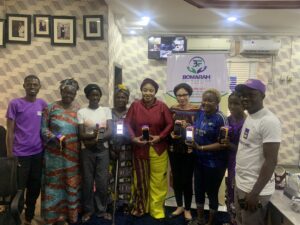
I also made history in ANLCA(Association of Nigeria Licensed Customs Agents), an organisation established in 1954, by becoming the first woman to serve in the executive at both chapter and national levels. Before then, no woman had ever held such a position. From that point on, I’ve continued to advocate for women’s inclusion and leadership in the maritime space, and I remain committed to carrying other women along.
(Q) In your opinion, is the government doing enough to support and encourage women in the maritime industry? If not, what areas do you think need improvement or attention?
In my opinion, the government’s support for women in the maritime industry is still lacking, as women make up only about 19% of the workforce, which is far from enough. We need more women in key positions to fill the gaps and create a more inclusive industry. A good example was Hadiza Bala Usman , the former MD of the NPA, who made significant strides in promoting women. She elevated women to high level positions, like directors, and provided essential support for working mothers, offering maternity leave etc.
However, since her departure, I don’t believe other agencies have continued this level of support for women’s advancement. There is still a long way to go in ensuring women have equal opportunities and recognition in the sector.






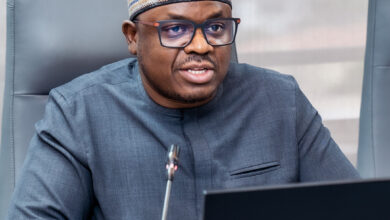
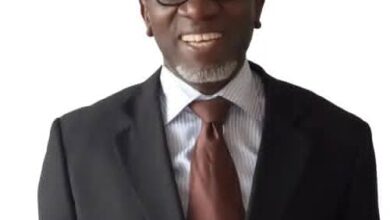
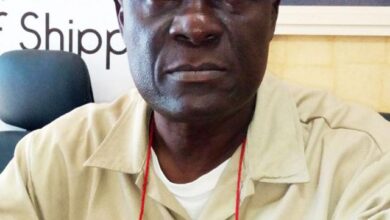
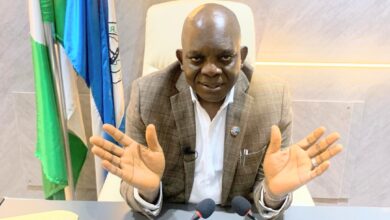
u8y281